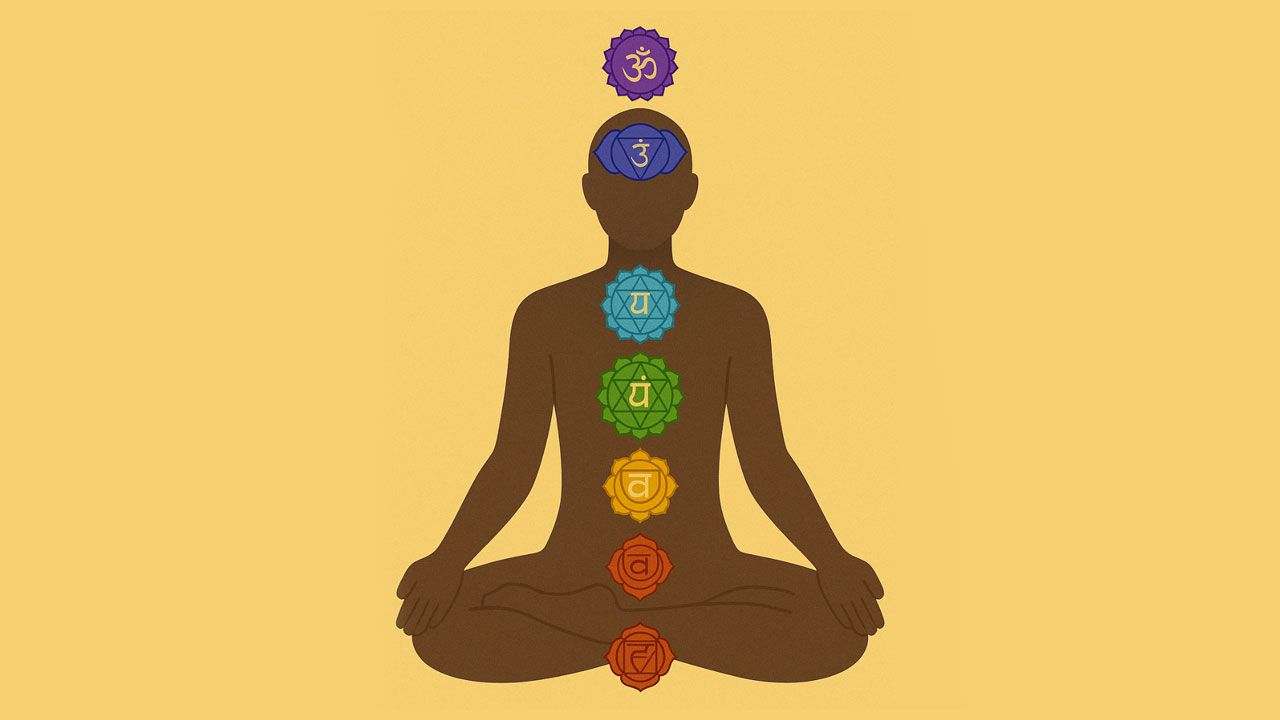Resolving Conflict in a Marriage or Relationship: 10 Strategies
Jan 07, 2025
Conflict is inevitable in marriage, but the key to a thriving relationship lies not in avoiding it, but in how couples choose to handle it. In fact, when navigated with care, conflict can serve as a pathway to deeper connection, trust, and mutual understanding. But how do couples truly master the art of resolving conflicts in ways that strengthen their bond rather than erode it?
Understanding Conflict in Marriage

Even the most picture-perfect couples, the ones who finish each other's sentences and seem to float through life in perfect harmony, occasionally want to throw a pillow at each other's heads. (Don't worry, it's completely normal!)
When two unique humans share a life together, sparks are bound to fly, and not always the romantic kind. Maybe one of you is a meticulous planner while the other embraces chaos. Perhaps one needs an hour of silence after work while the other wants to immediately share every detail of their day. These differences can create friction, but that friction isn't necessarily a bad thing.
Relationship conflicts are like weather patterns. Some are like summer storms, they blow in fast, make a lot of noise, but can be cleared up with the right approach (we call these solvable conflicts). Then there are the climate differences, those perpetual challenges that are more like living in Seattle vs. Miami. These perpetual conflicts, like how you squeeze the toothpaste tube or your different approaches to spending money, might never change completely, but you can learn to manage conflict by pack the right emotional umbrella.
The secret isn't to achieve some mythical conflict-free paradise. Instead, it's about turning these moments of tension into opportunities for connection, awareness and relationship transformation. The aim is to use the energy of conflict to bring you closer rather than push you apart. When couples learn to dance with their disagreements rather than fight against them, something magical happens: they don't just survive their conflicts, they grow stronger because of them.
Effective Communication Strategies for Conflict Resolution

Ever notice how some couples handle arguments gracefully while others seem to crash and burn? The difference usually isn't about how often they disagree, it's about how they communicate when they do.
At the heart of this skill is active listening. This means genuinely trying to understand your partner instead of just waiting for your turn to speak (we've all been guilty of this!). When both partners really listen, arguments transform from battles into conversations.
Then there's the power of "I" statements. Instead of "You never help with the dishes!" try "I feel overwhelmed when I'm handling the housework alone." This tiny shift in body language can completely change the tone of a discussion. Your partner is more likely to hear your concern rather than immediately jumping to defend themselves.
The most successful couples know they're on the same team, even during disagreements. The goal isn't to win an argument, it's to find a solution that works for both of you. After all, if one person "wins" while the other spouse feels defeated, has anything really been solved?
Non-defensive communication means staying open even when you feel attacked. It's tough! But responding calmly instead of firing back can prevent a minor disagreement from escalating into a full-blown fight. Take a breath, listen to what's really being said, and respond to the underlying concern rather than the heated words.
And then there's empathy, the ability to understand where your partner is coming from, even if you don't agree with them. Sometimes just acknowledging "I can sense why you'd feel that way" can defuse tension and open the door to real problem-solving.
The Art of Apologizing

Think of saying "I'm sorry" like ripping off a Band-Aid. It might sting for a moment, but it's the first step toward healing. A real apology isn't just words thrown out to end an argument; it's showing your partner that their feelings matter more than your pride.
When you truly own up to your mistakes without the "but" or "if" escape clauses, you're basically saying, "Hey, you and this relationship mean more to me than being right." Of course if a habitual pattern develops where one partner is always made to feel that they have to apologise while the other one rarely does, this is imbalanced. Another languaging which can be helpful is; “I am so sorry you felt hurt by my actions or words. Please help me to understand what you need so I can improve my way of approaching you.”
Apologizing can feel about as comfortable as a wool sweater in summer. It takes guts to make yourself vulnerable and admit how you may have messed up. But when you really get how your actions affected your partner and show them you understand, you're not just fixing a problem, you're actually bringing each other closer.
And it's not all about the person saying sorry. The partner on the receiving end has their own work to do, letting go of the hurt without keeping a mental scorecard. When both people bring this kind of openness to the table, that's when the real healing happens.
Common Mistakes to Avoid in Conflict Resolution

Let's talk about those relationship habits we all know we shouldn't do but somehow keep doing anyway. First up: holding onto anger like it's your favorite comfy blanket. Sure, staying mad might feel satisfying in the moment, but this is not helpful to the health of your relationship in the long term.
A quote from Gautama the Buddha says: “Holding onto anger is like grasping a hot coal with the intent of throwing it at someone else; you are the one who gets burned.”
Then there's the "I must win at all costs" approach. If you're in a relationship playing the winner/loser game, you're both actually losing. And don't get me started on the blame game, it might feel good to point fingers, but it fixes exactly nothing.
Some of us are guilty of being emotional hoarders, bottling up feelings until they explode like a shaken soda can. Not talking about what's bothering you doesn't make it go away, it just gives it time to grow from a minor annoyance into a major issue.
And then there's the "peace at any price" crowd, the ones who'd rather walk on eggshells than rock the boat. But avoiding problems is like ignoring a leaky faucet, it might seem fine now, but eventually, you're going to have some serious water damage to deal with.
Healthy Conflict Resolution Strategies
Practice Active Listening

Put down your phone, pause that mental to-do list, and really tune in to what your partner's saying. No, not the kind of listening where you're secretly planning your killer comeback, I'm talking about genuine, "I'm actually trying to understand you" listening.
Use “I” Statements
Instead of unleashing your inner prosecutor with "You ALWAYS leave dirty dishes in the sink!", try "I feel overwhelmed when I come home to a messy kitchen." See what happened there? Same message, way less likely to start World War III in your kitchen.
Take a Break When Needed

When you're one eye roll away from losing it, it's totally okay to hit pause. Sometimes the best thing you can say is "I need 15 minutes to cool off before I say something I'll regret." Your future self will thank you for not letting angry-you run the show.
Focus on the Problem, Not Each Other
You're not lawyers facing off in relationship court. You're more like co-detectives trying to crack the case of "Why Are We Actually Arguing About Loading The Dishwasher For The Third Time This Week?" (Spoiler: it's probably not really about the dishes.)
Practice Empathy
Sure, your partner's perspective might seem as logical as putting pineapple on pizza, but try to understand where they're coming from anyway. You don't have to agree with their point of view to acknowledge that their feelings are real.
Avoid Blame-Shifting
Own your part in the drama instead of playing hot potato with responsibility. "Yeah, I could have handled that better" goes a lot further than "But you started it!"
Speak Gently and With Humility

Nobody's ever won their partner's heart by perfecting their sarcastic eye roll. Keep it kind, even when you're irritated. Think less "savage comeback" and more "let's figure this out."
Collaborate on Solutions
Two heads are better than one, especially when they're not butting against each other. Work together like you're planning a heist, except instead of stealing diamonds, you're nabbing some quality solutions to your problems
Keep the Big Picture in Mind
In the heat of the moment, remember: this person is your chosen teammate, not your opponent. That argument about whose turn it is to clean the bathroom? Probably not worth throwing away your Netflix-watching, life-sharing, dream-building partnership over.
Forgive and Move Forward
Let that grudge go – it's weighing you down more than those leftovers in the back of your fridge. Fresh starts are the secret sauce of happy relationships.
Need a bigger reset button? Our Tantra Retreats are like a vacation for your relationship – but instead of just coming back with photos and souvenirs, you'll return with real skills for lasting connection. Leave the dishes, work stress, and endless to-do lists behind. Here, you'll learn how to turn those eye-rolling moments into opportunities for deeper understanding (and yes, there might be some fun involved).
Navigating Difficult Conversations

When conflicts are handled well, they actually make your relationship stronger. Sure, they're uncomfortable in the moment, but they push you to understand each other in ways that casual conversations never could.
Those "I" statements everyone talks about? They really work. Instead of "You never help around here!" try "I feel overwhelmed handling all the housework alone." Simple shift, but it changes everything. Your partner's more likely to hear you out instead of immediately jumping to defend themselves.
Repair attempts are your best friends during heated moments. When you notice things getting tense, throw out a simple "Hey, can we back up a bit?" or "I know we're both frustrated, but I want to understand what you're saying." Even a genuine "I'm sorry, let me try that again" can completely shift the energy of a conversation.
Also consider active listening. We've all been guilty of half-listening while planning our comeback, but that's exactly how small misunderstandings turn into bigger problems. When you really tune in to what your partner's saying (and not just waiting for your turn to speak), you might be surprised at what you learn.
Resolving Conflict in a Healthy Way
Getting good at handling conflicts takes time, and that's okay. You might need to revisit conversations multiple times before fully resolving them. Some days you'll handle conflict and things beautifully, other days... not so much. That's normal.
If you're stuck in a pattern you can't break, mediators or therapists can be incredibly helpful. They're not just for couples in crisis, they're for any couple who wants to communicate better. They can spot patterns you might miss and teach you techniques for resolving conflict in marriage you'd never think of on your own.
For couples who value faith, letting God or a higher power guide your most effective conflict resolution strategies can add an important dimension of humility and patience to the process. It helps you remember that there's something bigger than the current disagreement, keeping you focused on what really matters in your relationship.
A Healthy Way to Release Anger
Sometimes both you and your partner are boiling with anger to such an extent that it appears impossible to have a grown up rational conversation. At such points, it really helps to use the maverick Osho Pillow Beating Meditation. It may sound crazy, but it is a practice that can literally save your relationship and your sanity!
Step-by-Step Instructions for Osho Pillow Beating Meditation

For Individuals
Step 1: Preparation
- Find a quiet, private space where you won’t be disturbed.
- Place a big, soft cushion or pillow in front of you.
- Kneel comfortably on the ground, ensuring you have enough space to raise and lower your arms.
Step 2: Physical Release
- Clasp your hands together, creating a fist with your fingers interlocked.
- Stretch your arms high above your head, elongating your spine and engaging your whole torso.
- With force, bring your clasped hands down onto the cushion, shouting “NO!” loudly from your pelvis. Allow the energy to surge through your body as you strike.
- Repeat this movement and shout at least 10 times or until you feel a release of anger or tension.
Step 3: Silent Meditation
- Sit in a comfortable position in front of the cushion. Keep your spine straight, and close your eyes.
- Observe your body, mind, and emotions in silence. Become a neutral witness to whatever arises.
- Meditate in this stillness for 5 minutes.
Step 4: Repeat for 10 Days
For the best results, practice this meditation every day for 10 days to fully release suppressed anger and create a habit of emotional clarity.
For Couples
Step 1: Preparation
- Choose a safe, private space where you both feel comfortable.
- Each partner should bring a flower or a leaf to the session, which will be used symbolically.
- Place a large cushion or pillow in the center, with both partners kneeling on either side, facing each other.
Step 2: Physical Release Together
- Clasp your hands together, raise them above your head, and stretch your torso upward.
- Bring your clasped hands down onto the cushion with force, shouting swear words, abuse, or releasing sounds that come naturally to express your anger.
- Maintain eye contact with your partner as you both shout and strike the pillow. This creates an honest, shared space for releasing emotions.
- Continue this process for 3 minutes.
Step 3: Silent Meditation Together
- Sit in a meditative posture with a straight spine, facing your partner. Close your eyes.
- Witness your body, mind, and emotions in silence. Allow the energy to settle.
- Meditate for 3 minutes in this stillness.
Step 4: Ego Release
- Pick up your flower or leaf and hold it in your hands.
- Gaze at it in silence, pouring your ego, anger, and emotional patterns into the flower or leaf. Imagine emptying yourself of negativity and surrendering it into this natural object.
Step 5: Bow and Seek Guidance
- Place the flower or leaf on the floor in front of you. Bow down to it, symbolizing surrender to higher consciousness.
- Ask for guidance for the next step in your relationship. This can be from your own higher self, a divine entity, or spiritual figure.
Step 6: Share and Reconnect
- Once both of you feel ready, sit in the yab-yum position (one partner seated on the other’s lap, facing each other) or any comfortable position.
- Whisper the guidance you received into each other’s ears.
Step 7: Let Go in Nature
- Hand-in-hand, go outside into nature with your flower or leaf.
- Release it into the natural environment—into a stream, on the ground, or wherever feels right. This act symbolizes surrendering ego and allowing nature to transform it into something new.
Seeking Help and Support
Sometimes love needs a tune-up, and that's where Tantra Essence can help. We're not your typical "sit on a couch and talk about your feelings" kind of place. Instead, we offer something different: a chance to reconnect with your partner in ways that might surprise you (in the best possible way).
Ready to shake things up? Skip the couples' book club and dive into something that could actually transform your relationship. Check out our Tantra for Couples offerings, where "working on your relationship" doesn't feel like work at all.
Conclusion
Resolving conflict in a marriage or in a long term partnership is a delicate process that requires understanding, empathy, and mutual respect. It’s about creating a space where both partners feel heard, validated, and understood.
By embracing open communication, offering genuine apologies when needed, and maintaining a solution-oriented mindset, couples can navigate conflict and resolve disputes in ways that strengthen their relationship.
Mastering the art of effective conflict resolution often takes time, dedication, and practice, but the rewards are profound. With consistent effort, couples can transform conflict into opportunities for growth, leading to a stronger, healthier marriage where love and understanding flourish.















